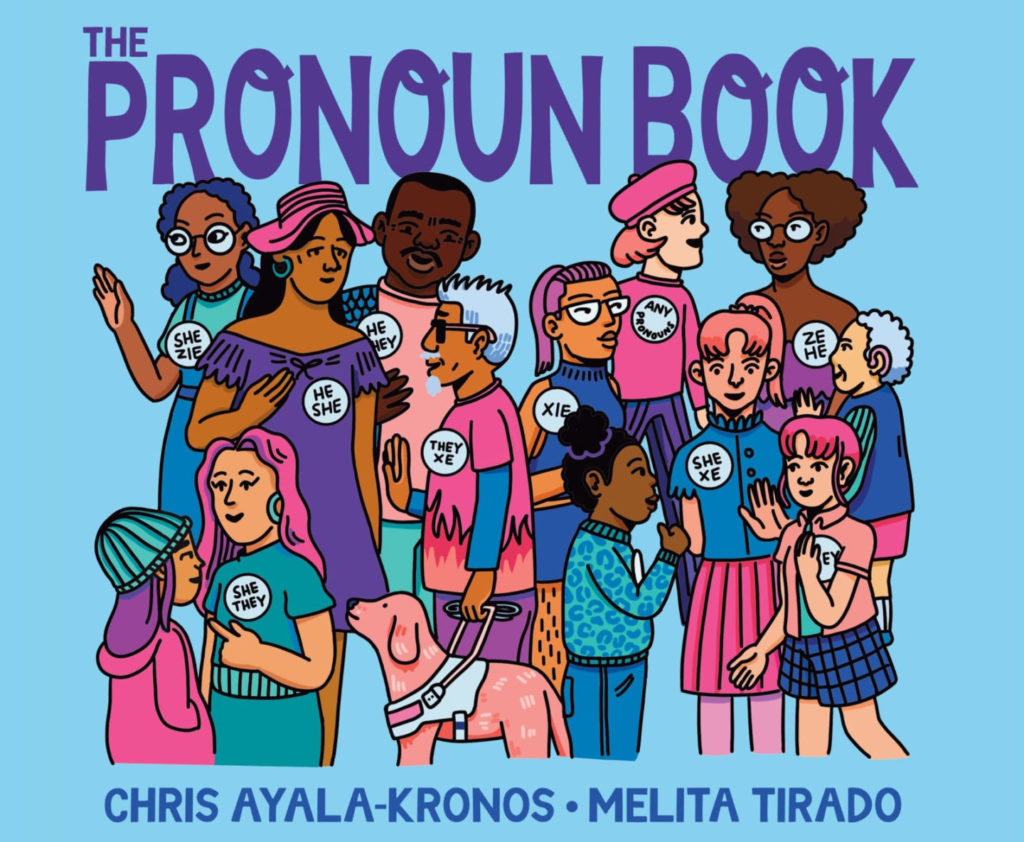Nonprofit reaching 5 million kids a year boasts extensive list of objectionable books
A nonprofit organization that gives away kids books is promoting content with sexual imagery, gender ideology and other woke concepts.
First Book provides books to schools and educators serving…

A nonprofit organization that gives away kids books is promoting content with sexual imagery, gender ideology and other woke concepts.
First Book provides books to schools and educators serving low income communities. But parents of children who the books target may find much of the content inappropriate.
“The Pronoun Book,” listed for 0-3 year olds, promises to be a “joyous introduction” to gender pronouns. The book features characters donning buttons with “neopronouns” such as “co, ey, per, xe, ze, and xe.”
“The Rainbow Parade,” a book for the same age group, is a “sweet and celebratory story of a girl’s first time marching with her two moms at Pride.”
For ages 4-6 are books such as “Kind Like Marsha: Learning from LGBTQ+ Leaders,” “The Fighting Infantryman: The Story of Albert D. J. Cashier, Transgender Civil War Soldier,” “If You’re a Kid Like Gavin: The True Story of a Young Trans Activist,” and “Fred Gets Dressed.”
The “Fighting Infantryman” was published “in partnership with GLAAD to accelerate LGBTQ inclusivity and acceptance,” according to the First Book website.
“You’re a Kid Like Gavin,” contains the following description: “Gavin knew that he was a boy—even if others saw him as a girl. But when his school took away his right to something as simple as using the boy’s restroom, Gavin knew he had a big decision to make. Because there are always more choices than the ones others give you.”
“Fred Gets Dressed” features 14 different illustrations of a naked child who “romps through the house, naked wild and free” and “loves to be naked.” When the boy dresses up in his mom’s clothes, he finds that he “looks great.” He also wears his mom’s jewelry and makeup.
For 7 to 9 year olds, “Small Town Pride” tells the story of a young boy who is openly gay in a town where he fights for a pride parade. For the same age group, “Stamped,” by Ibram X. Kendi and Jason Reynolds, teaches the concept of anti-racism, which advocates for constant introspection of implicit racial bias, identification of systemic racism and admission of white privilege, among other things.
For 10 to 12 year olds is “Unequal: A Story of America” which claims that “racial inequality permeates every facet of American society.”
From children 13 and older, the woke content ramps up significantly.
“Kiss & Tell” is a “sexy YA novel about a boy band star, his first breakup, his first rebound, and what it means to be queer in the public eye.” The book details the protagonist’s “very painful breakup with his first boyfriend,” which includes “leaked sexts.”
“The Passing Playbook” is a story about a biological female who identifies as a male, who gets a fresh start at “the most liberal private school in Ohio.” When the protagonist’s trans identity is revealed, a “discriminatory law” forces the coach to bench him. The story details the main character’s fight to play and the “guy he’s falling for.”
The objectionable content isn’t only in First Book’s newest arrivals:
- “Flamer” contains graphic discussions about penis size and erections, along with illustrations of naked teenage boys.
- A book about RuPaul geared towards 7-9 year olds celebrates drag and includes instructions in the back about how to participate.
- “Aristotle and Dante Dive into the Waters of the World” and “Aristotle and Dante Discover the Secrets of the Universe” discuss masturbation in-depth and include page upon page of graphic depictions of sexual acts between teen boys.
First Book states on its website that since 1992, it has “distributed more than 200 million books and educational resources to programs and schools serving children from low-income communities,” reaching “an average of 5 million children every year.”
Fox News Digital asked the organization whether schools and parents are notified of potentially objectionable content.
“While we work directly with our community of formal and informal educators who are able to choose the books that serve their students,” First Books stated, “we recognize the deep bond between those educators and the parents and caregivers of the children they serve.
When asked how “distributing books with sex imagery promotes diversity,” First Book did not have an answer.



